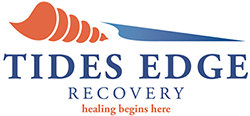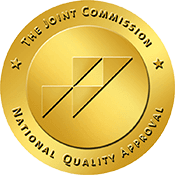Some mental health conditions are connected directly to substance use disorders. In fact, there is strong evidence that co-occurring disorders (when someone struggles with both a substance use disorder and a mental health issue) are quite common among those who have addiction issues. Anxiety and addiction are two conditions that tend to coincide together, compounding the healing journey. However, through dual diagnosis treatment, clients can go on to live a happy and fulfilled life. At Tides Edge Detox, we understand that addiction is a multifaceted disease. It has physical effects as well as psychological and emotional aspects. Entering a detox program is the first step to addressing addiction and beginning the healing process. However, when individuals also have an underlying mental health issue or have one grow out of their addiction, dual diagnosis treatment is necessary.
Why are Anxiety and Addiction Connected?
There is a well-documented connection between anxiety and addiction. Approximately 20 percent of people who have anxiety or other mood disorders like depression also have a substance use disorder. Additionally, many people in the United States have an anxiety disorder. In fact, it’s one of the most common mental health disorders. However, the connection between anxiety and addiction is more than a mere coincidence, according to researchers at NIH.
When individuals struggle with both a substance use disorder, an addiction to drugs or alcohol, and a mental health issue, both conditions need to be treated simultaneously. If only one aspect of the co-occurring disorder is addressed, then it is very likely an individual will relapse soon after treatment due to the strain of the other condition. Individuals may make it through detox for their substance abuse but then begin using again because of the pain their mental health condition is causing. Similarly, even if an anxiety disorder or depressive disorder is overcome, an individual will remain addicted and struggling without addressing the substance use disorder.
What Occurs First When Anxiety and Substance Abuse Co-Occur?
The question that is often asked when there’s a diagnosis of anxiety and addiction is which problem occurred first? And, did one problem lead to or caused the other problem? Researchers are still studying these questions, and those in the medical community have differing views about this. On the one hand, it’s easy to see how anxiety could lead to an addiction problem.
When someone is anxious and worried, which is the clinical definition of anxiety, they may use drugs to alleviate the symptoms. Drugs or even alcohol may make the person feel calmer and able to manage the anxiety. Over time, the person may develop a substance use disorder. In this instance, we can see how anxiety led to drug use.
On the other hand, a side effect of certain drugs is anxiety. Additionally, when you try to quit just about any drug or alcohol, you will likely experience anxiety. Drugs can change how your brain responds to the world, thus leading to an anxiety disorder that may not have existed before.
Find Hope for Healing at Tides Edge Detox
Welcome to our Tides Edge Detox facility, where you will find help and healing for co-occurring conditions such as anxiety and addiction. Our JCAHO accredited detox center provides the help you need to get off drugs and overcome anxiety disorders. We offer comprehensive detox and therapy rehab. Some different treatment options we have, include:
- Residential treatment program
- Partial hospitalization program (PHP)
- Detox treatment program
- Outpatient treatment program (OP)
- Transitional living treatment program
Our experienced, compassionate staff works with all types of drug addictions. Whether you’re struggling with meth, heroin, cocaine, painkillers, or another substance, you will find the treatment you need for healing.
Don’t wait another day to take care of your needs. You can overcome your anxiety and addiction by going to a comprehensive detox and therapy center, such as Tides Edge Detox. Contact us at 866.723.3127, or contact us online and we’ll get you on the road to recovery.









